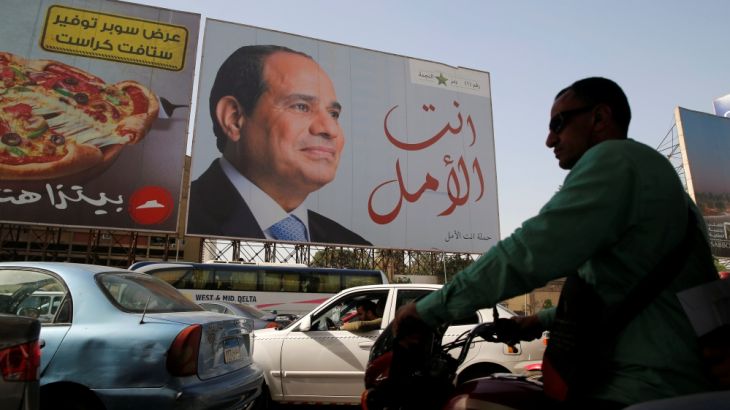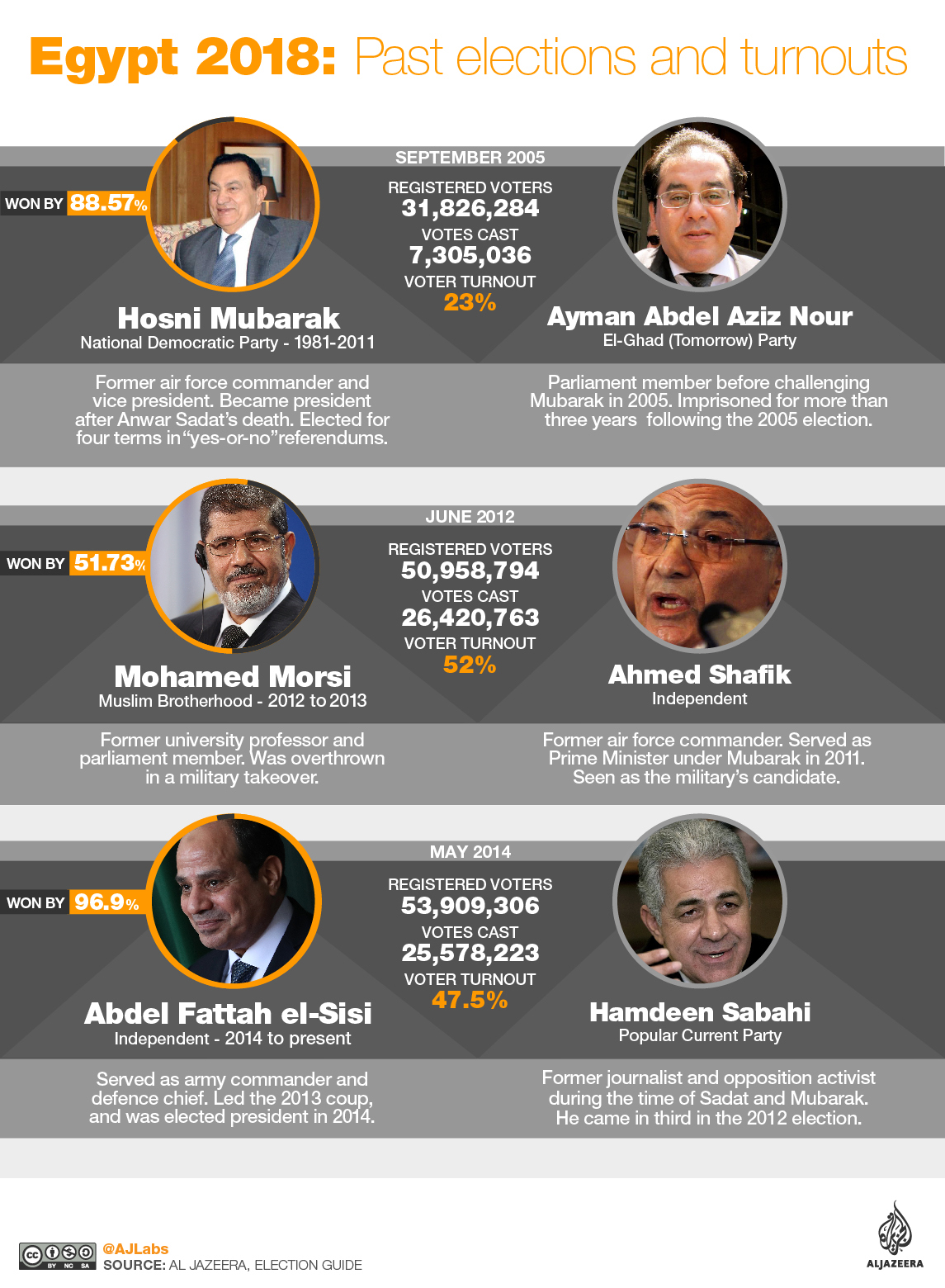Egypt elections: Voter turnout is the main suspense
Egyptians are heading to the polls, seen largely as a referendum on Sisi’s performance due to lack of opponents.

The turnout in the Egyptian presidential elections will be closely watched for an indication of people’s trust in the incumbent President Abdel Fattah el-Sisi, who is set to win after eliminating any real opposition to his rule.
The three-day election, which kicked off on Monday, is largely viewed as a referendum on el-Sisi’s performance, as he is running against one of his supporters, Moussa Mustafa Moussa, a little-known politician who had endorsed him for a second term and even organised events to help nominate the former military commander.
Keep reading
list of 4 items‘Absolute power’: After pro-China Maldives leader’s big win, what’s next?
Solomon Islands pro-China PM Manasseh Sogavare fails to secure majority
Pro-China party on course for landslide victory in Maldives election
|
|
El-Sisi has been urging a high voter turnout among the nearly 60 million eligible voters to affirm his legitimacy after all credible opponents dropped out in January, citing intimidation by authorities after his main challenger was jailed.
“This election has a distinct populist dimension,” said Ziad Akl, a senior researcher at the Al-Ahram Center for Political and Strategic Studies. “The result of the election is already known, so a high turnout is the real prize here, which the regime will capitalise on.”
When he was first elected in 2014, el-Sisi won by nearly 97 percent of the vote. However, less than half of eligible Egyptians voted even when the election was extended to three days instead of two.
‘Security and stability’
El-Sisi claims he brought security and stability to the country during his four-year presidency, highlighting the war waged on armed groups and leading the military coup in 2013 that overthrew Egypt’s first freely elected president, Mohamed Morsi.
However, he has struggled to defeat the Islamic State of Iraq and the Levant (ISIL, also known as ISIS) armed group in the Sinai peninsula, which gained strength after Morsi’s overthrow, with regular attacks on security forces and deadly church bombings.
An assault on a mosque in November killed more than 300 people – the worst attack in Egypt’s modern history.
Over the past four years, the government has introduced economic reforms – including painful subsidy cuts and the floating the currency.
That improved the investment climate and earned Egypt a $12bn bailout loan from the International Monetary Fund. But the austerity measures sent prices soaring, exacting a heavy toll on ordinary Egyptians, especially with more than 25 percent living below the poverty line.

Crackdown on dissent
During el-Sisi’s presidency, thousands have been jailed, and unauthorised protests have been outlawed.
Human rights groups say a crackdown on press freedom has stifled dissent in the run-up to the vote, with Egyptian authorities calling for legal action against media outlets they deem to be publishing “fake news”.
The media is dominated by virulently pro-government commentators. Independent journalists have been arrested or deported, and hundreds of websites have been blocked.
The military said on Sunday it would monitor local and foreign media coverage of the vote from a specially created media centre that would operate around the clock.